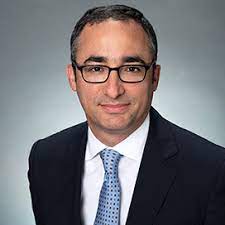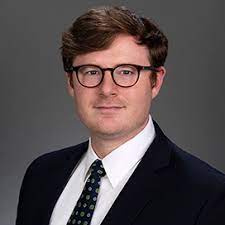Featured Expert Contributor—Life Sciences and Medtech Regulation



Matt Wetzel is a partner in the Washington, DC office of Goodwin Procter LLP and serves as the WLF Legal Pulse’s Featured Expert Contributor, Life Sciences and Medtech Regulation. Roger Cohen is a partner, and Andrew Hess is an associate, in the firm’s New York, NY office.
***
A recent Advisory Opinion from the U.S. Department of Health & Human Services Office of Inspector General (OIG) offers insight on a longstanding issue facing health and medical technology companies in the diagnostic and laboratory testing space: namely, the treatment of fees paid to health care providers to collect and process patient specimens.
Many diagnostic and laboratory testing companies produce in vitro diagnostic and laboratory-developed technology that requires a sample of patient tissue (typically, blood) to run the test. In these instances, a phlebotomist or other provider staff member will draw the patient’s blood, label and package the sample, and ship the sample to a laboratory to run the relevant tests. Anyone who has ever had blood drawn for a lab test is (sometimes painfully) familiar with this process.
Sometimes, laboratories running the tests will pay a “draw fee” or “specimen collection and handling fee” to the patient’s health care provider or the phlebotomist as compensation for the time and services provided in drawing the blood. Paying this fee—especially if it is greater than the fair market value of the actual services provided—has the potential of running afoul of the Federal Anti-Kickback Statute.* More specifically, the fee could be viewed as an improper financial incentive to a physician to order a particular test or to steer patients to a particular test, testing company, or laboratory over another.
The government has raised a flag about the risks that draw fees or special collection fees pose under the Anti-Kickback Statute for many years. Indeed, United States v. Porter, 591 F.2d 1048 (5th Cir. 1979), one of the first cases litigated under the Anti-Kickback Statute, dealt with payments made as compensation to physicians for drawing blood samples. In Porter, the government alleged that such fees violated the Anti-Kickback Statute. While the physicians at issue were originally convicted in the trial court, the Fifth Circuit reversed the convictions, in an ill-conceived opinion asserting that the fees were not “kickbacks” as commonly understood (“In ordinary parlance, a kickback is the secret return to an earlier possessor of part of a sum received”) but rather a simple payment for legitimate services. That same year, the Seventh Circuit reached the opposite conclusion in a case also involving specimen fees, United States v. Hancock, 604 F. 2d 999 (7th Cir. 1979).
In a 2014 Special Fraud Alert, OIG addressed the payment of such fees and identified several characteristics that present added risk under the Anti-Kickback Statute. These include:
- A fee that exceeds the fair market value for services actually rendered by the party receiving the payment.
- A fee that covers services for which payment is also made by a third party, such as Medicare.
- A fee that is paid directly to the ordering physician rather than to the ordering physician’s group practice, which may bear the cost of collecting and processing the specimen.
- A fee that is paid on a per-specimen basis for more than one specimen collected during a single patient encounter or on a per-test, per-patient, or other basis that takes into account the volume or value of referrals.
- A fee that is offered on the condition that the physician order either a specified volume or type of tests or test panel, especially if the panel includes duplicative tests (e.g., two or more tests performed using different methodologies that are intended to provide the same clinical information), or tests that otherwise are not reasonable and necessary or reimbursable.
- A fee that is paid to the physician or the physician’s group practice, despite the fact that the specimen processing is actually being performed by a phlebotomist placed in the physician’s office by the laboratory or a third party.
OIG makes clear in its Special Fraud Alert that its concerns are not alleviated simply because an arrangement “carves out” Medicare business or other government business.
The payment of laboratory draw fees has also turned up in recent False Claims Act settlements with the Department of Justice.
Enter Advisory Opinion 22-09—yet another instance in which OIG shoots down the concept of paying laboratory draw fees. In a fairly short and directly worded opinion, OIG concludes that the proposed fees would generate prohibited remuneration under the Anti-Kickback Statute.
- Under the arrangement contemplated by Advisory Opinion 22-09, the operator of a network of clinical laboratories (the “Lab”) would enter contracts with hospitals under which the hospitals collect, process, and handle any specimens collected from patients and send these specimens to the Lab for tests to be run. The Lab submits claims to the patient’s insurance and is paid for running the tests. As part of the arrangement, the Lab also pays the hospital a per-patient-encounter fee to cover costs associated with collecting the specimen.
- The Lab indicated that the per-patient specimen collection fee would be consistent with the fair market value for the blood draw services, and that the arrangement would not permit the hospital to bill any payors or patients for the blood draw services.
OIG concludes, however, that the arrangement runs afoul of the Anti-Kickback Statute by creating a financial incentive for hospitals to steer patients to the Lab. First, OIG notes that careful scrutiny is required given the “per patient” fee structure, which is “inherently reflective of the volume or value of referrals or business” between the parties. Even if the fee does reflect the fair market value of the draw services, this does not remove the financial incentive to steer patients towards the Lab.
Second, the OIG does not buy the Lab’s proposed safeguard that hospitals would agree that none of their affiliated physicians would be required to refer or direct patients to the Lab. OIG notes that the risk of inappropriate steering is not mitigated by this promise, as the amounts paid by the Lab to the hospitals could be used to offset the costs that the hospitals incur to employ or contract with personnel to perform the specimen collection services. In other words, if two labs offer the same test, and one lab will pay a specimen collection fee, the hospital will most likely choose the fee-paying lab over the other.
Further, OIG states that the arrangement does not fall under any safe harbors, including the personal services, management contracts and outcomes-based payment arrangements safe harbor (42 CFR § 1001.952(d)) as the per-patient-encounter compensation methodology is based on the volume or value of referrals for which payment may be made under a federal health care program.
Advisory Opinion 22-09 reflects another example of an area in which health care and medical technology and lab testing companies must tread carefully not to run afoul of federal law. It is conceivable that OIG will weigh in further on the issue—not to mention the uncertainty of the Department of Justice’s continued and discretionary enforcement of the health care fraud and abuse laws. But one thing we do know is that clinical laboratories, laboratory testing companies, and other stakeholders in the testing and diagnostics space should be aware of OIG’s skeptical view.
Note
*Passed originally in 1972 as an amendment to the Social Security Act, the Anti-Kickback Statute turns 50 this year. The original law classified violations as misdemeanors. Congress passed the Medicare-Medicaid Anti-Fraud and Abuse Amendments of 1977, in part, to reclassify violations as felonies.
